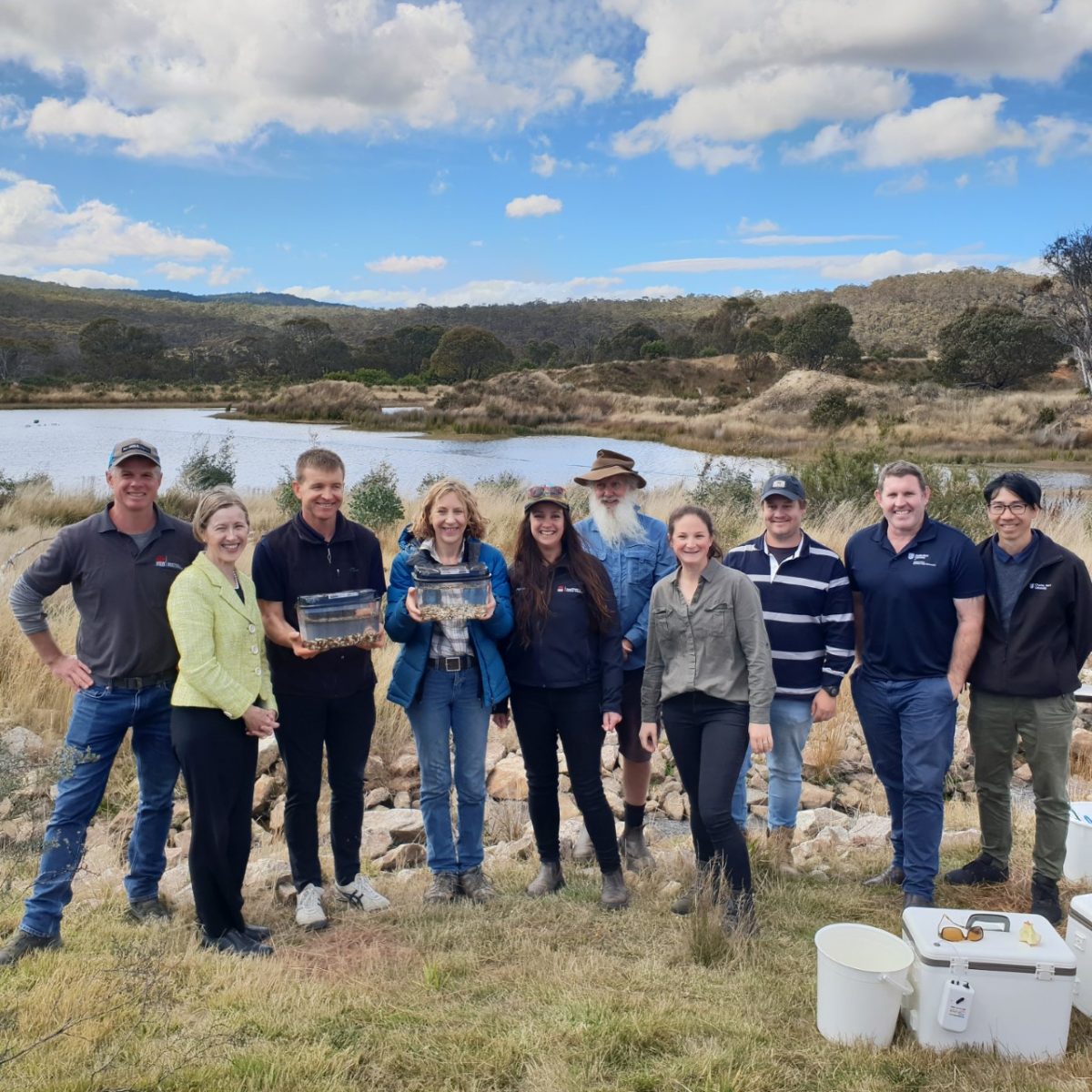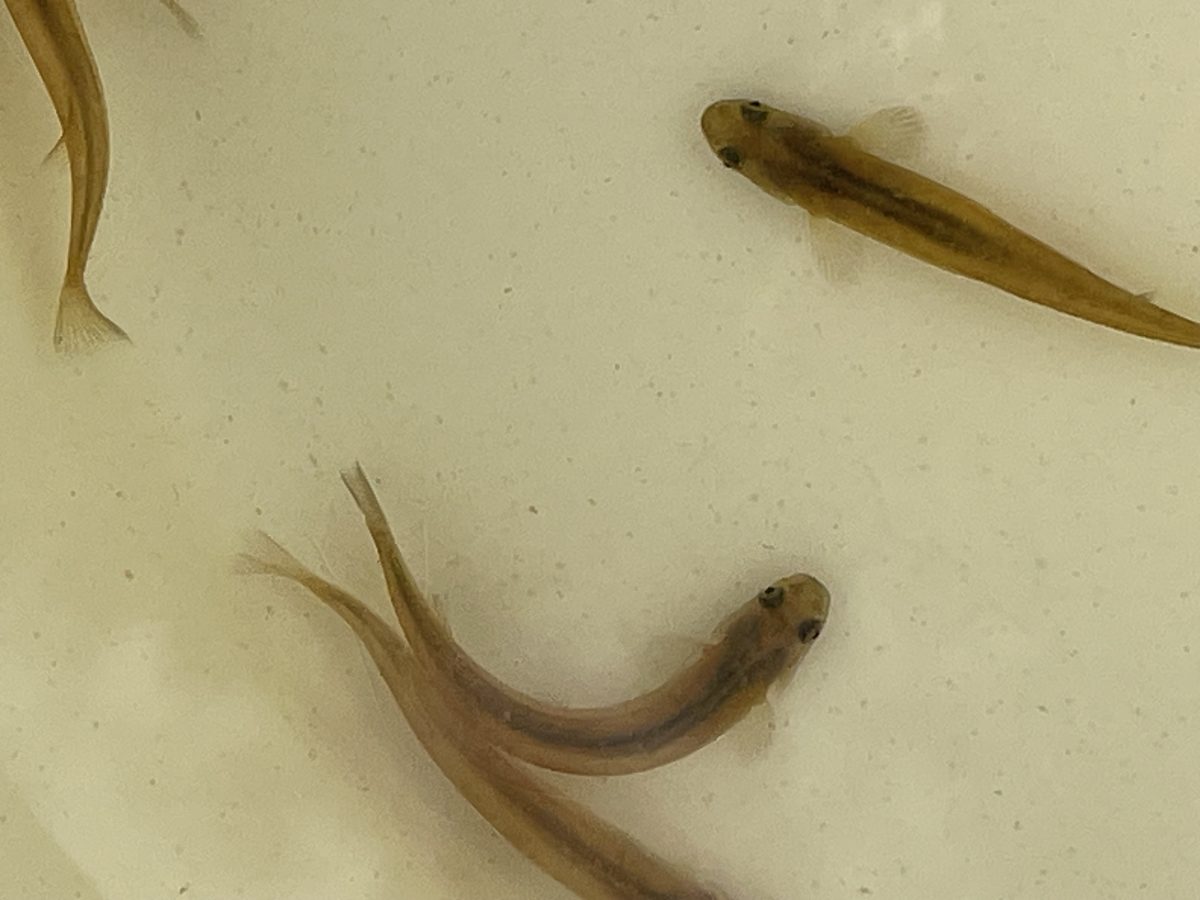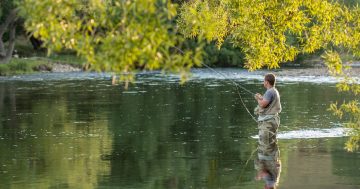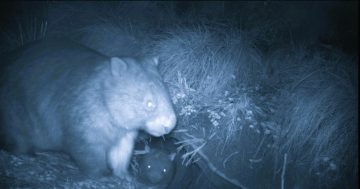
Pictured from left are Luke Pearce (DPI), Charles Sturt Vice-Chancellor Professor Renee Leon, Gulbali Institute executive director Professor Lee Baumgartner, Amina Price (CSU), Jillian Keating (DPI), Mark Lintermans (Fish Fondler), Katie Doyle (CSU), Zac Rolfe (CSU), Jarred McPherson (CSU) and An Vu (CSU). Photo: Charles Sturt University.
An endangered Snowy Mountains resident has been given a new lease of life and indeed a chance at longer life through an innovative program conducted by Charles Sturt University (CSU).
Normally surviving in a highly restricted habitat, the tiny native fish stocky galaxias numbers have increased through a captive-breeding program at the university campus at Albury-Wodonga and the Gaden Trout Hatchery in Jindabyne.
The repopulation program is a world first and was carried out by CSU with the NSW Department of Primary Industries.
The result has been the release of 130 fish into Eucumbene Burrows on 27 April.

Endangered native fish stocky galaxies have been released into Eucumbene Burrows. Photo: Charles Sturt University.
Bushfires in 2019 and the significant rainfall that followed threatened to create a potential fish-kill event.
The fish were captured on site and taken to the aquatic research facility at Charles Sturt in Albury-Wodonga and the DPI hatchery at Jindabyne.
CSU Vice-Chancellor Professor Renee Leon said the project illustrated the importance of collaboration to help protect threatened species.
“By stocking fish – the majority of which were successfully bred by Charles Sturt University – into the new habitat, we are supporting the recovery of the species long-term,” Professor Leon said.
“Releasing this population of fish into Eucumbene Borrows creates additional, geographically distinct populations of stocky galaxias, which will give this native species the best chance of surviving.
“This project is just the latest which demonstrates the immense value of collaborations between Charles Sturt’s researchers with the university’s government and industry partners.”
Executive director of the Gulbali Institute for Agriculture, Water and Environment, Professor Lee Baumgartner, said initial captive breeding was deemed necessary to preserve the species but it was a significant milestone to be releasing these fish into the wild.
“This is an exciting and important phase of this project that we have been working towards over a number of years,” he said.
“Getting these fish back into the wild is an important step in the conservation of these species and acts as an insurance policy for their ongoing survival.
“Saving threatened species from extinction is one of the reasons we become scientists. Moments like these are absolutely rewarding and are giving the species a fighting chance.”
NSW Department of Primary Industries (DPI) Fisheries deputy director-general Sean Sloan said this stocking event was yet another vital step forward for recovering this tiny native fish.
“Stocky galaxias are at high risk of extinction due to a raft of threats, including their extremely restricted range in Kosciuszko National Park, 56 per cent of which burned during the catastrophic 2019-20 bushfires,” Mr Sloan said.
“In 2022, DPI – along with project partners NSW National Parks and Wildlife Service (NPWS) and South-East Local Land Services – rehabilitated Eucumbene Borrows, an unused Snowy Mountains Hydro Scheme site, with support from the Australian Government’s Bushfire Recovery for Wildlife and their Habitat program.
“These recovery activities will provide great future habitat and help prevent the extinction of this critically endangered fish.”
The Gulbali Institute for Agriculture, Water and Environment is a strategic investment by CSU to drive integrated research to optimise farming systems, enhance freshwater ecosystems and improve environmental management, to deliver benefits across Australia and globally.









